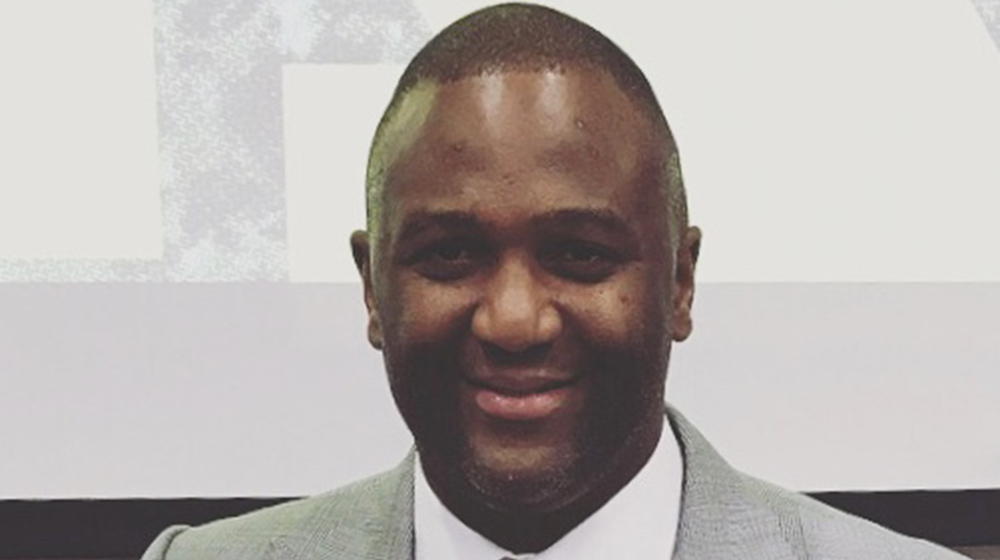Pettis Kent

"The top lesson to take from the supply chain field is that we live in a dynamic, not static, world. Almost no day, week, or month is the same," says Professor Kent.
Degree: PhD in Business Administration with a focus in Supply Chain Management and Operations; University of Minnesota – Carlson School of Management
Occupation: Assistant Professor
What is your educational and professional background?
I went to Florida A&M University (FAMU) for my bachelor’s degree in marketing as well as my master’s degree in operations. When I was nearing graduation from FAMU, I considered pursuing jobs in either marketing or supply chain, and chose a supply chain role at The Procter and Gamble Company, where I worked for 12 years. While there, I had multiple global supply chain roles, developing and managing supply chains across the globe. Eventually, I decided I wanted to leverage my experience and ultimately become a professor, so I left P&G in 2012 and pursued my PhD at the University of Minnesota.
What drew you to supply chain management?
While completing my undergraduate degree, I had a marketing internship at Ford between my sophomore and junior year. Before my final year in graduate school, my contacts at Ford asked if I was interested in performing a supply chain internship. Through this internship, I saw the impact that effective supply chain management can have on a firm’s bottom line, especially in a heavy manufacturing environment! That experience is what really motivated me to pursue opportunities in the supply chain field. While I had several offers for marketing jobs post graduation, I felt that a job at P&G in their supply chain department would be dynamic and allow me to do business in different countries/cultures. I was right, and my time at P&G continues to impact the way I teach my classes as well as how I conduct research!
What led you to Loyola?
What attracted me to Loyola was three fold. First, I was attracted to the Information Systems and Supply Chain Management department and its desire to grow and improve an already strong department. I am excited about being a part of that growth and development! Secondly, Loyola is a close-knit community in which the faculty, staff and administration care about not only delivering a top-notch education to our students, but we also care about the making the world a better place. Lastly, I love the idea of having a business school in a business rich environment like Chicago. Having spent time in Minneapolis for my PhD, I saw firsthand how a business school and its students could benefit by interacting with a strong business community.
What is your favorite teaching style?
I am passionate about bridging the gap between academia and the “real world” via experiential learning. One of my favorite professors in grad school, Dr. Andy Van de Ven, calls it “Engaged Scholarship.” I believe that it is important to teach my students how the knowledge learned from the textbook is applied in the real world, so I assign and discuss case studies with them on a regular basis. I also bring in guest speakers who are currently addressing the issues we discuss in class for the best companies around the world (P&G, FedEx, Scott’s, Presence Health, Ritz-Carlton, etc.). I want my students to leave my classes knowing confidently that “I know how to apply what I learned in the real world.”
What is your research focus?
My research up until now has been focused on “production process moves,” which is when a company changes product manufacturing locations, whether it’s within or between countries. Many times, firms focus on various key decisions of the move, including brownfield vs. greenfield selection, current vs. new equipment, etc. but do not focus on perhaps the most elusive part of a move, which is transferring the knowledge associated with the process. My first published paper (Kent and Siemsen 2018, Production and Operations Management Journal) focuses on the use of templates and explicit knowledge, and the boundary conditions that come with using templates. This is an important topic, because there are so many firms moving their production globally, with varying degrees of success. My goal is to help those undergoing production moves to develop winning strategies for their firm.
What supply chain trends have caught your attention?
One of the biggest trends within business and industry is the changing dynamics of global supply chains and the impact these changes are having on the firm and its partners. Whether it is the declining production cost gap between the U.S. and China, the maturation of production capability within countries like India, Vietnam, and Mexico, or the impact that geopolitical decisions (e.g., U.S. tariffs on Chinese imports) are having on trade, it is important for Quinlan’s students to understand that these trends have the power to impact them and their careers for decades to come!
What is the top lesson to take from supply chain?
The top lesson to take from the supply chain field is that we live in a dynamic, not static, world. Those in marketing, accounting, and finance may say the same, but in global supply chain management, almost no day, week, or month is the same. Our goal within Quinlan is to prepare our students to perform well in any environment, so that is definitely a driving force in the way I teach my classes!
